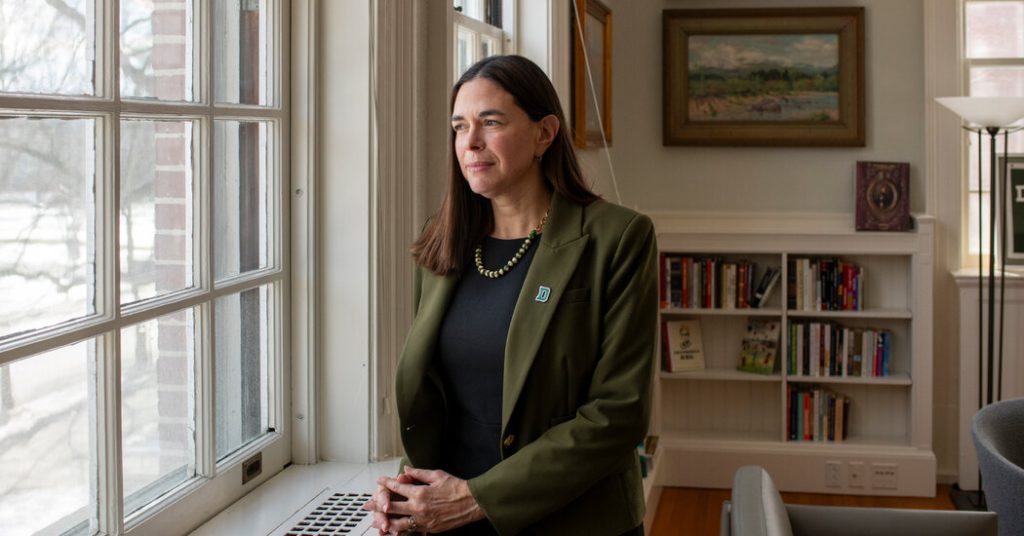The Faculty of Arts and Sciences at Dartmouth College voted to censure the university’s president, Sian Leah Beilock, over her decision to involve the police in removing a pro-Palestinian encampment on campus. This decision was seen as harmful to the community and disruptive to the university’s educational mission. The vote was close, with 183 in favor of censure and 163 against, highlighting the division on campus over Dr. Beilock’s actions. In response, Dr. Beilock defended her decision, citing a perceived threat of violence as the reason for involving law enforcement.
Although the censure vote had no practical effect, it was a significant move as it was believed to be the first censure vote against a Dartmouth president in its 255-year history. The chair of Dartmouth’s board, Liz Lempres, expressed support for Dr. Beilock, praising her leadership in challenging circumstances. Despite the support from some faculty members, there was criticism from others, including faculty members who were arrested during the police intervention. One faculty member, Annelise Orleck, expressed satisfaction at the censure vote, expressing hopes that future leaders would hesitate before using violence against peaceful protesters.
During the meeting where the censure vote took place, Dr. Beilock explained her position to the arts and sciences faculty, who teach undergraduate students at Dartmouth. The criticism towards her was described as “withering” by one professor, Matthew J. Garcia, who helped draft the censure resolution. He argued that the protesters had taken a vow of peace, making Dr. Beilock’s claims of fearing violence implausible. He also highlighted how students from various backgrounds were affected by the decision to involve law enforcement, leaving them in a state of limbo.
In a similar move, the Faculty of Arts and Sciences at Columbia University passed a no-confidence vote against its president over her handling of pro-Palestinian protesters. The no-confidence vote is seen as more serious than a censure vote. This trend continued at the University of Southern California, where the Academic Senate censured its president after a controversial incident involving the cancellation of a Muslim student’s valedictory address and the arrest of protesters. Dr. Beilock, a cognitive scientist who became president of Dartmouth last June, faced heightened scrutiny over her handling of the pro-Palestinian encampment incident.
Despite the censure vote, Dr. Beilock maintained the support of Dartmouth’s board and some faculty members who recognized the difficult decision she had to make. Bruce Sacerdote, a professor of economics, expressed a sense of disappointment over the vote, emphasizing that even those who disagreed with the timing of Dr. Beilock’s actions recognized the complexity of the situation. The debate surrounding the involvement of law enforcement in campus protests continues to spark discussions and division within academic communities across different universities.








